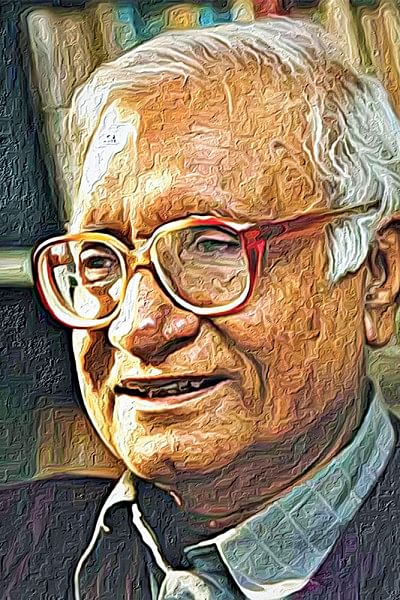Serajul Islam Chowdhury speaks about the state of Bangla education

Language and education are prime markers in identifying one's participation in society and politics. Having just commemorated the International Mother Language Day on February 21, that too on the verge of our nation's silver jubilee, it is perhaps a unique opportunity for us to question, reflect, and make changes to our politics on language, education, and social identities.
On this topic, writer, academic, and Professor Emeritus of Dhaka University, Serajul Islam Chowdhury delivered an insightful speech on the occasion of Shaheed Dibash and the International Mother Language Day on February 21, 2021. The webinar, titled "Mother Language and Education, Bangladesh'' (translated), was organised by the Central Women's University, Dhaka.
Professor Chowdhury spoke about the history of the Bangla language and how it has impacts our current social fabric. Bangla as we know it, according to the speaker, is an arbitrary implementation of the methods set in place by the College of Fort William which rejected the usages of local language as the standardised form. The communal tensions created by the British Raj resulted in further separating the two largest religious communities. With Hindus participating in what was hegemonically constructed as modern education, the Muslims lagged behind. This resulted in two major political parties backed by the British: the Muslim League and the Congress.
Professor Chowdhury argues that Bangla's potential of becoming one of the most widely spoken languages of the world has stumbled throughout history. Before the Language Movement of 1952, the last terrible blow dealt to us was the defeat of Mirza Muhammad Siraj-ud-Daulah, the last Nawab of Bengal, in The Battle of Plassey in 1757. It cemented an overwhelming cultural and capitalist hegemony upon Bangla speakers.
Professor Chowdhury expresses concern about the policies being undertaken with regard to language, which is weakening both the strength of language and hampering the education system.
The importance of proper education as a knowledge seeking enterprise is being ignored. Knowledge is no longer related to progress and livelihood, it has become a capitalist venture. The exclusion of literature from textbooks and the negligence of history as a subject have been serving these capitalist agendas.
Professor Chowdhury points out two major tasks that must be undertaken to establish a good educational practice. The first being writing of more books, more research, and more nurturing of reading habits. The second is the translation of more texts into Bangla, so that the language also gets richer. Professor Chowdhury points out that the role of proper translation is paramount in modern education, so that arbitrary impositions on its working are avoided.
Most importantly, class conflicts have to be broken through to ensure a collective and inclusive education system.
Asif Newaz teaches at the Central Women's University.

 For all latest news, follow The Daily Star's Google News channel.
For all latest news, follow The Daily Star's Google News channel. 



Comments